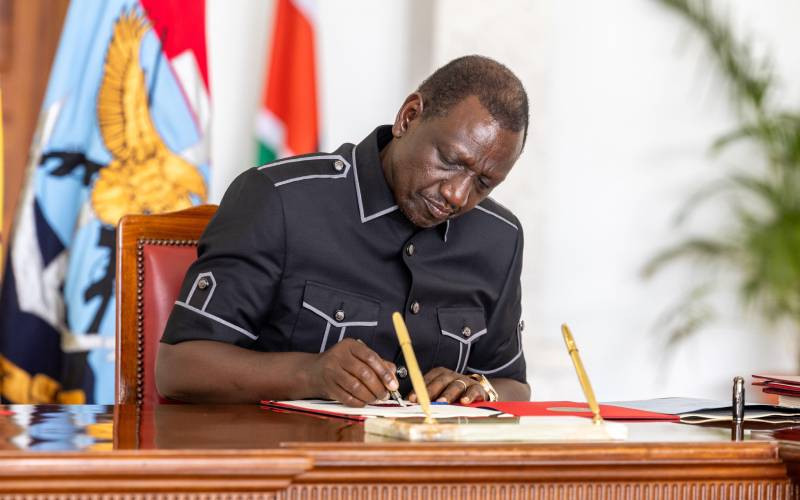Candidates contesting elections will be spared intense scrutiny of their character after a Bill to enforce integrity was stripped of mandatory vetting by the public.
Key State organs earlier detailed to vet the candidates and prospective appointees to public offices have also been sidelined under the published Leadership and Integrity Bill.
Instead, it is proposed that candidates and those seeking appointment will fill a self-declaration form in which they will tick against a list of moral and ethical questions.
The Bill cleared by the Commission for the Implementation of the Constitution had compelled those seeking an appointment or election to a State office to obtain a certificate of compliance in line with Chapter Six of the Constitution.
The National Intelligence Service, National Police Service, Kenya Revenue Authority and Higher Education Loans Board were among agencies invited to do the background check.
Findings were to be relayed to the Independent Electoral and Boundaries Commission and anyone who failed the compliance test was to be automatically disqualified.
However, the Bill published by Justice Minister Eugene Wamalwa on August 3 has done away with this rigorous vetting process and essentially left it upon the candidates to assess themselves. The only caveat is that this would be done under oath.
Another aspect is that disqualification from elections is only after one is convicted at the conclusion of “a fair administrative process.”
Ambiguity
The ambiguity is apparently designed to cushion scores of MPs and aspirants with pending cases.
“A person is not eligible for election or appointment to a State office if, after a fair administrative process has been undertaken, the person is found to have contravened the rules, regulations or the code of any entity that do not contravene the constitution or this Act on matters relating to ethics and integrity,” the Bill reads.
The Bill has also struck out the requirement for candidates and prospective public appointees to make full disclosure of their wealth.
It has also limited the ban on participating in gainful employment to allow State officers directorship in private companies, conduct business that “does not require active participation” and any work not covered under the Employment Act.
CIC has warned the weakened draft law defeats the Bill’s objective to provide “a minimum threshold of election based on personal integrity, competence and suitability.”
The Bill is due to be presented to Parliament and is among laws require to be passed by the end of the month.
Stay informed. Subscribe to our newsletter
— Stories by Alex Ndegwa and Allan Kisia
 The Standard Group Plc is a
multi-media organization with investments in media platforms spanning newspaper
print operations, television, radio broadcasting, digital and online services. The
Standard Group is recognized as a leading multi-media house in Kenya with a key
influence in matters of national and international interest.
The Standard Group Plc is a
multi-media organization with investments in media platforms spanning newspaper
print operations, television, radio broadcasting, digital and online services. The
Standard Group is recognized as a leading multi-media house in Kenya with a key
influence in matters of national and international interest.
 The Standard Group Plc is a
multi-media organization with investments in media platforms spanning newspaper
print operations, television, radio broadcasting, digital and online services. The
Standard Group is recognized as a leading multi-media house in Kenya with a key
influence in matters of national and international interest.
The Standard Group Plc is a
multi-media organization with investments in media platforms spanning newspaper
print operations, television, radio broadcasting, digital and online services. The
Standard Group is recognized as a leading multi-media house in Kenya with a key
influence in matters of national and international interest.









